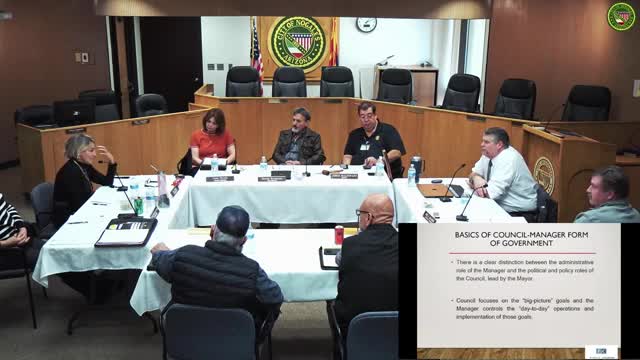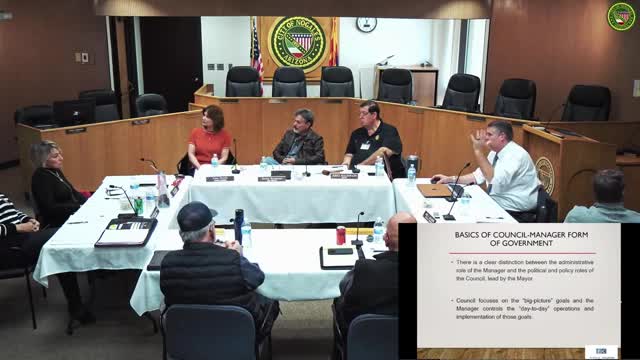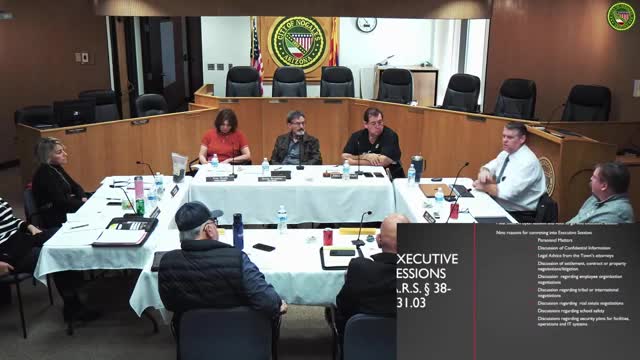Article not found
This article is no longer available. But don't worry—we've gathered other articles that discuss the same topic.

Council to hold special meeting to assign interim city clerk duties while clerk on FMLA; appointment tabled

Nogales staff to explore options after council reviews $360,000 in overdue sewer accounts

Nogales council directs GPS installation for fleet, asks staff to draft updated vehicle policy

